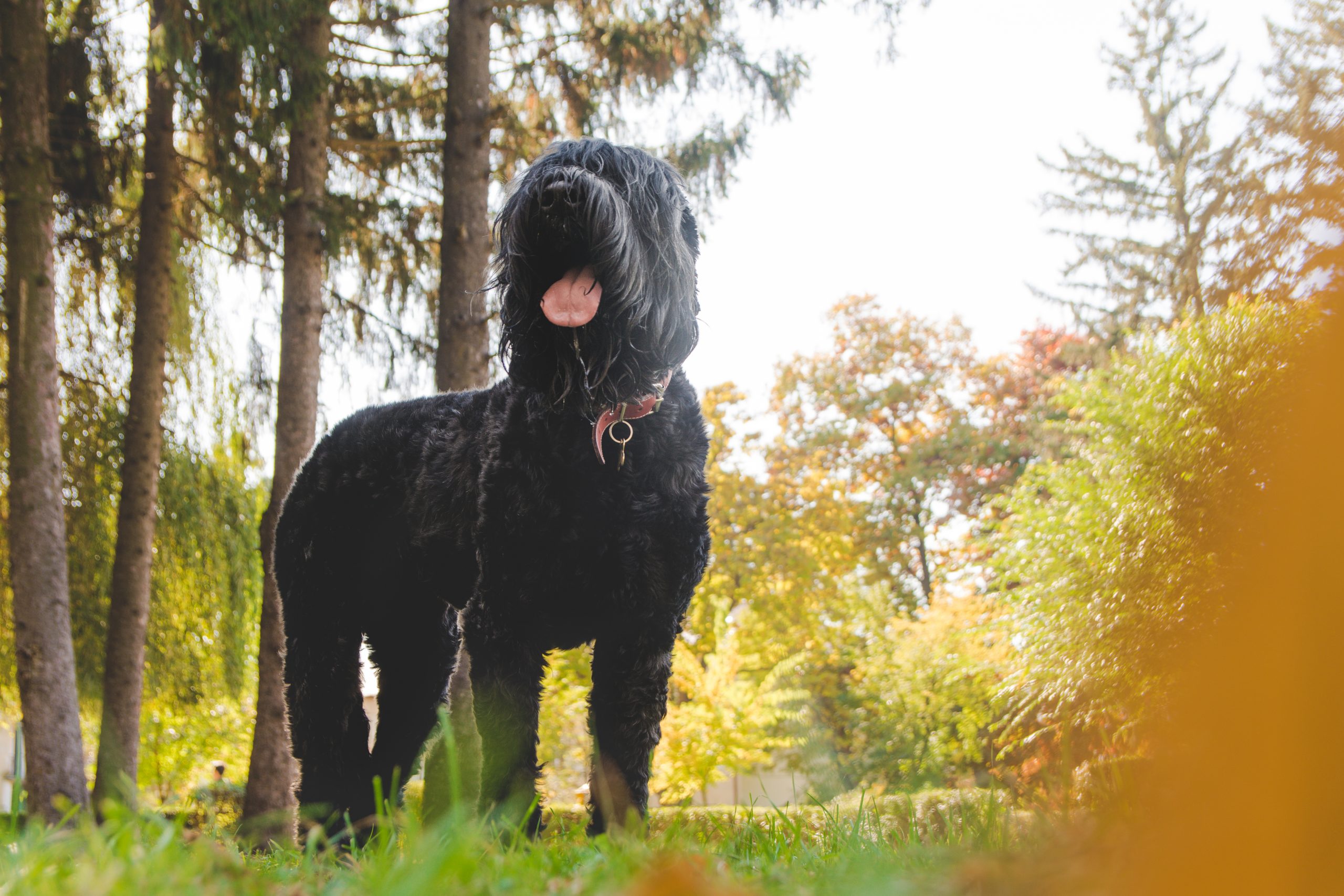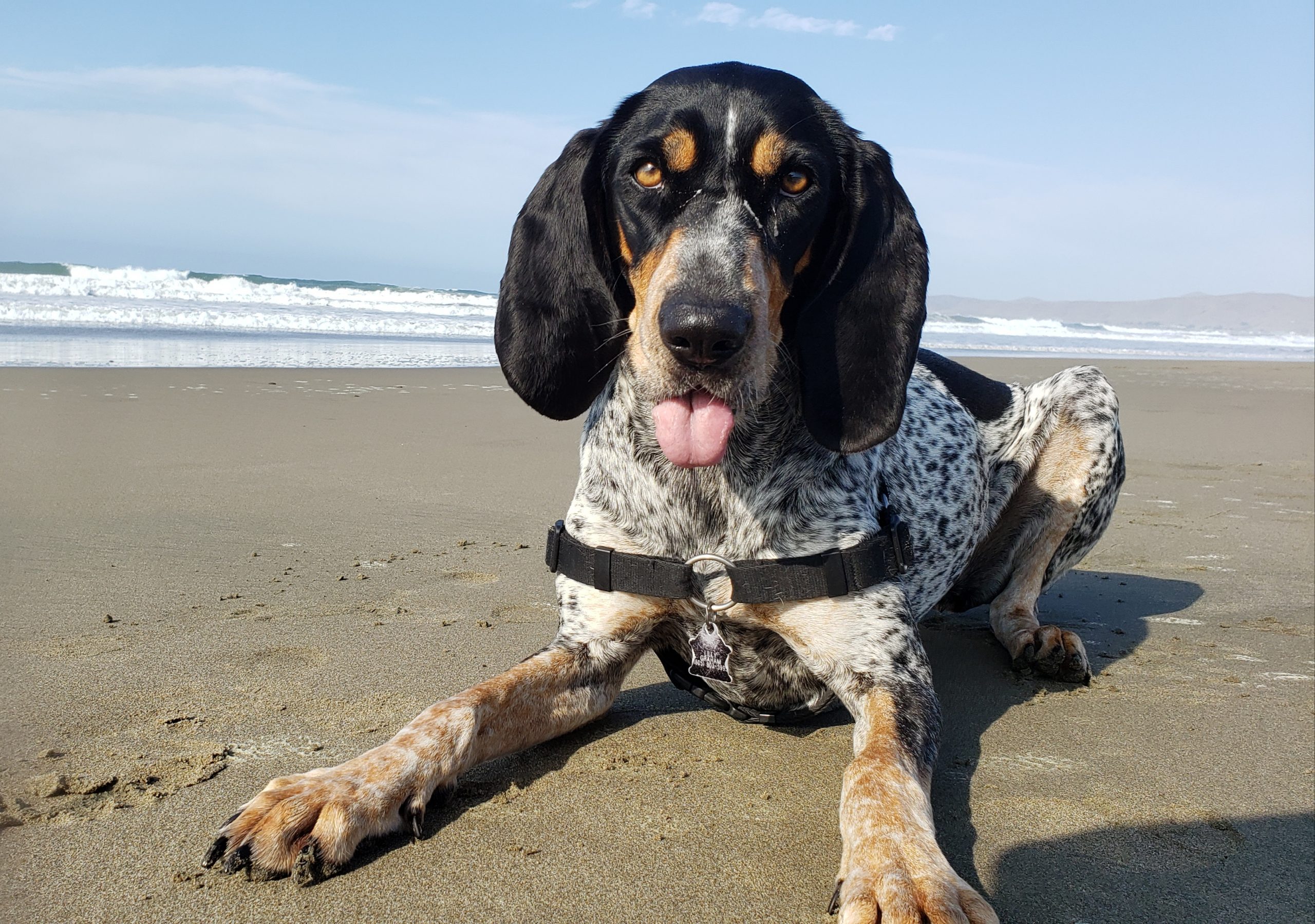The Black Russian Terrier, a robust and large breed, boasts an impressive stature, reflecting its origins and breeding for work and guard duties. Males typically stand between 27 to 30 inches at the shoulder, while females are slightly smaller, ranging from 26 to 29 inches. Regarding weight, males can weigh anywhere from 110 to 132 pounds, and females from 99 to 114 pounds, showcasing the breed’s significant bulk and muscle. These dogs possess a distinctive black coat, dense and somewhat curly, contributing to their imposing appearance. As a breed developed in the Soviet Union for military and working purposes, their size and strength are pivotal characteristics, enabling them to perform a variety of tasks, from guarding to pulling sleds.
Male Black Russian Terrier Weights & Heights by Age
The following chart contains the average weights and heights of male Black Russian Terrier from newborn to 3 years of age. Please note these are only averages. Always consult with your veterinarian if you have any concerns about your Black Russian Terrier’s growth.
| Age (Months) | Average Weight (lbs/kg) | Average Height (in/cm) |
|---|---|---|
| 0 (Birth) | 1.2 lbs / 0.54 kg | 8 in / 20.32 cm |
| 1 | 10 lbs / 4.54 kg | 12 in / 30.48 cm |
| 2 | 20 lbs / 9.07 kg | 16 in / 40.64 cm |
| 3 | 35 lbs / 15.88 kg | 20 in / 50.8 cm |
| 4 | 50 lbs / 22.68 kg | 22 in / 55.88 cm |
| 6 | 70 lbs / 31.75 kg | 24 in / 60.96 cm |
| 8 | 85 lbs / 38.56 kg | 26 in / 66.04 cm |
| 12 | 100 lbs / 45.36 kg | 27 in / 68.58 cm |
| 24 (2 years) | 110 lbs / 49.90 kg | 28 in / 71.12 cm |
| 36 (3 years) | 130 lbs / 58.97 kg | 30 in / 76.2 cm |
Female Black Russian Terrier Weights & Heights by Age
The following chart contains the average weights and heights of female Black Russian Terrier from newborn to 3 years of age. Please note these are only averages. Always consult with your veterinarian if you have any concerns about your Black Russian Terrier’s growth.
| Age (Months) | Average Weight (lbs/kg) | Average Height (in/cm) |
|---|---|---|
| 0 (Birth) | 1 lbs / 0.45 kg | 7.5 in / 19.05 cm |
| 1 | 8 lbs / 3.63 kg | 11 in / 27.94 cm |
| 2 | 17 lbs / 7.71 kg | 15 in / 38.1 cm |
| 3 | 30 lbs / 13.61 kg | 18 in / 45.72 cm |
| 4 | 44 lbs / 19.96 kg | 20 in / 50.8 cm |
| 6 | 60 lbs / 27.22 kg | 22 in / 55.88 cm |
| 8 | 75 lbs / 34.02 kg | 24 in / 60.96 cm |
| 12 | 90 lbs / 40.82 kg | 25 in / 63.5 cm |
| 24 (2 years) | 99 lbs / 44.91 kg | 26 in / 66.04 cm |
| 36 (3 years) | 114 lbs / 51.71 kg | 29 in / 73.66 cm |
These tables are based on general guidelines and can vary greatly depending on individual dogs. Always consult with a veterinarian or professional breeder for more specific information about your pet’s growth and development.
FAQs about a Black Russian Terrier Puppy’s Growth and Development
1. How quickly do Black Russian Terrier puppies grow?
Black Russian Terrier puppies experience rapid growth during their first year, particularly in the first six months. This growth rate tends to slow down after six months, though they continue to fill out in muscle and bulk until about 2 years old. Monitoring their growth through regular weigh-ins and vet check-ups is essential to ensure they are on the right track.
2. What is the average weight of a Black Russian Terrier puppy at 3 months?
At 3 months, a Black Russian Terrier puppy typically weighs around 35 pounds (15.88 kg) for males and 30 pounds (13.61 kg) for females. This can vary based on diet, genetics, and activity levels. Regular check-ups can help ensure your puppy is growing healthily.
3. How tall should my Black Russian Terrier be at 6 months?
By 6 months, male Black Russian Terrier puppies are usually about 24 inches (60.96 cm) tall, and females are slightly shorter. Height growth will continue but at a slower pace, and they will start gaining more muscle and body mass.
4. Is it normal for my Black Russian Terrier puppy to gain weight rapidly? Yes, rapid weight gain is normal for Black Russian Terrier puppies given their large breed status. However, it’s crucial to ensure the weight gain is healthy and not excessive, as this could lead to joint issues. A balanced diet and regular vet consultations are key.
5. Can I predict the adult size of my Black Russian Terrier puppy?
While you can estimate the adult size of your Black Russian Terrier based on the size of their parents and growth charts, individual growth can vary. Factors like nutrition, health, and activity level also play significant roles in their final adult size.
6. What diet supports the best growth for a Black Russian Terrier puppy?
A balanced diet rich in proteins, vitamins, and minerals supports healthy growth in Black Russian Terrier puppies. Since they are a large breed, foods formulated specifically for large breed puppies can help manage their rapid growth and support bone health.
7. How can I tell if my Black Russian Terrier puppy is overweight?
You should be able to feel but not see your puppy’s ribs without pressing hard, and they should have a visible waist when viewed from above. An overweight puppy may lack these indicators, and it’s best to consult a vet for a proper assessment and advice.
8. What are the signs of a growth spurt in Black Russian Terrier puppies?
Signs of a growth spurt include increased appetite, more sleep, and sudden visible changes in size. Puppies might seem clumsier as they adjust to their rapidly changing bodies. Growth spurts are normal but should be monitored to ensure healthy development.
9. Why is my Black Russian Terrier puppy not gaining weight as expected?
If your Black Russian Terrier puppy is not gaining weight as expected, it could be due to various factors such as parasites, improper diet, or underlying health issues. It’s essential to consult with a veterinarian to determine the cause and appropriate treatment.
10. How much exercise does a growing Black Russian Terrier puppy need? Moderate exercise is crucial for their development, including short walks and playtime. However, too much strenuous activity should be avoided to prevent stress on their developing joints. Always adapt exercise to your puppy’s energy levels and physical capabilities.
11. What are common health issues in growing Black Russian Terrier puppies?
Like all large breeds, they can be prone to hip dysplasia, elbow dysplasia, and other joint issues. Ensuring a proper diet, regular vet check-ups, and maintaining an appropriate weight can help mitigate these risks.
12. When do Black Russian Terrier puppies stop growing in height?
Most Black Russian Terrier puppies will reach their full height by around 12 months but can continue to fill out and gain muscle until about 2 years old. Their growth rate slows significantly after the first year.
13. Can supplements help my Black Russian Terrier puppy grow bigger?
While a balanced diet should provide all the necessary nutrients for healthy growth, some supplements may be recommended by your vet for specific concerns, like joint health. However, unnecessary supplementation can do more harm than good.
14. How should I monitor my Black Russian Terrier puppy’s growth?
Regular weigh-ins and measuring their height can help you track their growth. Comparing these measurements to breed-specific growth charts can offer insights, but remember, each puppy is unique.
15. What to do if my Black Russian Terrier puppy is growing too fast?
If your puppy is growing too quickly, it may increase their risk for joint problems. Consult your vet, as they may recommend dietary adjustments or other interventions to help regulate their growth rate.
16. Is it normal for Black Russian Terrier puppies to have growing pains?
Growing pains, or panosteitis, can occur in large breeds like the Black Russian Terrier. Symptoms include limping or reluctance to move. If you notice these signs, it’s essential to see a vet for proper diagnosis and treatment.
17. How do genetics affect my Black Russian Terrier puppy’s growth?
Genetics play a significant role in determining the size and growth rate of your puppy. The size of their parents can give you a good indication of their future size, but environmental factors like diet and exercise are also crucial.
18. What should I do if my Black Russian Terrier puppy is the runt of the litter?
Runts may need extra care to catch up in size and strength, including more frequent feeding schedules and close monitoring. With proper care, many runts grow up healthy and strong, comparable to their littermates.
19. Can overfeeding harm my Black Russian Terrier puppy’s growth?
Overfeeding can lead to obesity and exacerbate joint issues, especially in large breeds like the Black Russian Terrier. It’s crucial to follow feeding guidelines and adjust as necessary based on your puppy’s growth and activity level.
20. How do I ensure my Black Russian Terrier puppy grows up to be healthy and strong?
Providing a balanced diet, ensuring they get appropriate exercise, regular veterinary care, and lots of love and socialization will help your Black Russian Terrier puppy grow up healthy and strong. Monitoring their growth and adjusting care as needed are key parts of responsible puppy ownership.








:max_bytes(150000):strip_icc():focal(1001x685:1003x687)/Bear-Suspected-Fatally-Mauling-Man-and-Dog-5-79e171aa6f2f4caa87e157c59043f202.jpg)
